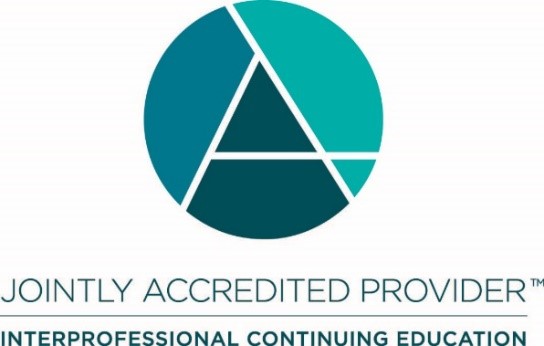Effects of White and Brown Bagging on Oncology Practice
Health plans are implementing white and brown bagging as a cost saving measure. There are real patient safety and experience concerns, and these need to be identified publicly as payers continue to adopt these models. Currently, payers and providers are at odds on the implementation of these processes. This is a topic that affects academic centers and community practices as well. The Community Oncology Alliance (COA) have some strong position statements against white bagging, and physicians in the community setting are more likely to be involved in the day to day business operations. There is a need for increased education around the potential risks and cost-related motivation in order to reach a best practice compromise on both sides.
Target Audience
The program is designed to meet the needs and improve the competence and performance of the interprofessional oncology care team, including physicians, nurse practitioners, nurses, physician assistants, pharmacists, and other relevant health care professionals who manage the care of patients with cancer.
Learning Objectives
Following this program, participants should be able to:
- Describe the motivation and risks associated with white and brown bagging and their effects on oncology practice.
- Discuss processes that can be implemented in clinical practice to address safety concerns.
Heather Jones, PharmD, MS
Case Comprehensive Cancer Center/University Hospitals Seidman Cancer Center and Cleveland Clinic Taussig Cancer Institute
Michael E. Seabright, PharmD, BCOP
Case Comprehensive Cancer Center/University Hospitals Seidman Cancer Center and Cleveland Clinic Taussig Cancer Institute
NCCN Continuing Education Disclosure Policy
It is the policy of NCCN that every 12 months, all faculty, moderators, activity planners and all internal planning staff participating in NCCN continuing education activities are expected to disclose any financial relationships with a commercial interest. In addition, all faculty presentations have been reviewed to ensure education is fair and balanced and that clinical content presented supports safe, effective patient care. Individuals who do not disclose relevant financial relationships will be disqualified from involvement in the CE activity as a content developer, planner, or presenter.
Definitions
NCCN continuing education considers financial relationships to create a conflict of interest when an individual has both a financial relationship with a commercial interest and the opportunity to affect continuing education content about the products or services of a commercial interest with which he/she has a financial relationship.
NCCN continuing education considers relevant financial relationships as financial relationships in any amount occurring within the past 12 months that create a conflict of interest. NCCN does not set a minimal dollar amount for relationships to be significant. Inherent in any amount is the incentive to maintain or increase the value of the relationship.
Faculty Disclaimers
All faculty for this continuing education activity are competent in the subject matter and qualified by experience, training, and/or preparation for the tasks and methods of delivery.
Faculty presentations may include discussion of off-label use. Faculty will disclose that the use in question is not currently approved by the FDA per the product labeling.
Faculty Disclosures
The faculty listed below discloses no relevant financial relationships:
Heather Jones, PharmD, MS
Michael E. Seabright, PharmD
NCCN Staff Disclosures
The NCCN Leadership listed below discloses no relevant financial relationships:
Robert W. Carlson, MD; Wui-Jin Koh, MD; Gary J. Weyhmuller, MBA, SPHR
The NCCN Activity Planning staff listed below discloses no relevant financial relationships:
Mike Abrams; Melissa Esplen; Mark A. Geisler; Kristina M. Gregory, RN, MSN, OCN; Kristin Kline Hasson; Rose Joyce; Karen Kanefield; Lisa Perfidio, MS; Shannon Ryan, CMP; Kathy Ann Smith, CHCP; Sarah Weinstein
The NCCN staff listed below disclose no relevant financial relationships:
James McCanney, JD
The NCCN Clinical staff listed below discloses no relevant financial relationships:
Evelyn Handel, PharmD, BCPS, BCOP

In support of improving patient care, National Comprehensive Cancer Network (NCCN) is jointly accredited by the Accreditation Council for Continuing Medical Education (ACCME), the Accreditation Council for Pharmacy Education (ACPE), and the American Nurses Credentialing Center (ANCC), to provide continuing education for the healthcare team.
Physicians
NCCN designates this enduring material for a maximum of 0.75 AMA PRA Category 1 Credit™. Physicians should claim only the credit commensurate with the extent of their participation in the activity.
Nurses
NCCN designates this educational activity for a maximum of 0.75 contact hour.
Pharmacists
NCCN designates this knowledge-based continuing education activity for 0.75 contact hour (0.075 CEUs) of continuing education credit. UAN: JA4008196-0000-21-049-H01-P
Physician Assistants
NCCN has been authorized by the American Academy of PAs (AAPA) to award AAPA Category 1 CME credit for activities planned in accordance with AAPA CME Criteria. This activity is designated for 0.75 AAPA Category 1 CME credit. Approval is valid until March 1, 2022. PAs should only claim credit commensurate with the extent of their participation.
Available Credit
- 0.75 AAPA Category 1 CME credit
- 0.75 ACPE contact hours
- 0.75 AMA PRA Category 1 Credit™
- 0.75 ANCC contact hours
- 0.75 Participation
Required Hardware/software
To complete this activity, users will need:
- A device with an Internet connection and sound playback capability
- One of the two latest versions of Google Chrome, Mozilla Firefox, or Safari
- Internet Explorer is no longer supported
- Adobe Reader or other PDF reader software for certificate viewing/printing

 Facebook
Facebook X
X LinkedIn
LinkedIn Forward
Forward